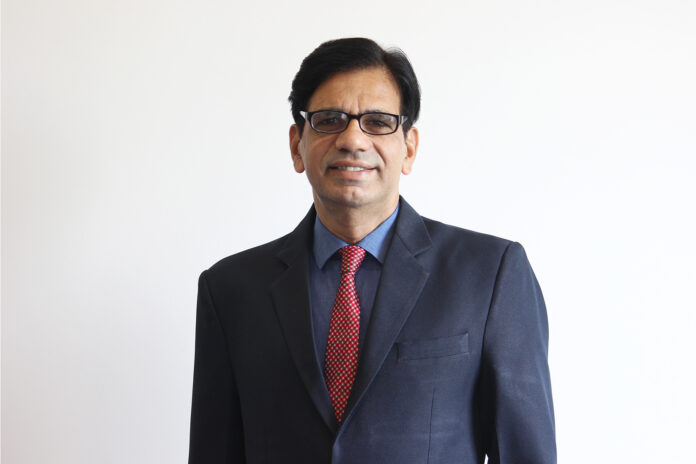Dr Raveendranath Nayak Director & Professor IILM Graduate School of Management IILM University Greater Noida
Massive Open Online Courses is part of a movement to establish universities that won’t collect any tuition fee (free universities) from learners. The aim is to make quality education equitable and accessible. MOOCs overcomes the constraints of time, distance, and cost faced by learners who intend to attend conventional school, college or university for their education. MOOCs provide online learning opportunities using technology.
The two salient aspects of MOOCs are a) it must be free, and b) it has large scale.
Technologies used in the preparation of the MOOCs courses and the platform on which these courses are delivered have changed over the years starting from correspondence (print), radio, television, audio and video cassettes, CD-ROM and now the internet. With the deployment of the affordable and ubiquitous internet for the MOOCs delivery, the scale and access of MOOCs courses has seen unprecedented growth. Today MOOCs delivery platforms are using cutting edge technologies such as Cloud, Artificial Intelligence (AI), Virtual Reality (VR) and machine vision to enhance the learning experience. These technologies have been integrated into MOOCs delivery platforms to overcome the bottlenecks faced in the delivery and in achieving the effective learning experience.
MOOCs has been a key strategic initiative of the Ministry of Education, Government of India (GOI) to increase the Gross Enrolment Ratio (GER) in higher education from 27.1 per cent in 2021 to over 60 per cent by 2035. SWAYAM is its formidable delivery platform that is aiming to take the best teaching resources of our nation’s premier institutions of IITs, IIMs, and NITs to all learners, including the most disadvantaged. In SWAYAM all the MOOCs courses can be accessed free of cost. However, to earn certification the learner has to pay a nominal fee to the University or Institution delivering the course. Some are free too. This small fee goes towards the cost of marking and certification. Infosys Springboard is another large MOOCs platform, offering mostly technical and soft skill courses is available for the learners studying in the institutions registered with Infosys. This registration is free for the institutions.
In the global level the MOOCs platforms operate on ‘not-for-profit’ or on ‘for-profit’ basis. The most popular among the global MOOCs platform is edX founded in 2012, having 160+ Institutions and Universities as participating members that include Massachusetts Institute of Technology (MIT) and Harvard University. They together deliver 3600+ university level courses. The enrolment has reached 110+ million. As they are MOOCs courses, they can be accessed free. In most, to earn certification and credits, the learner has to pay the fee to the university delivering the course, which is affordable than for attending the same course in person in the university. With some universities, which are not less reputed, you can stack up the credits to earn Bachelor’s and Master’s degrees. COURSERA is a similar global MOOCs platform.
ALSO READ: Things to consider while choosing an institution for higher education
Khan Academy is a global, non-profit MOOCs education provider of school and secondary college courses. In India their online courses for Class I to Class XII are very popular.
Progressive colleges and universities in India have integrated MOOCs into their classroom lectures, which is known as blended learning. Some follow flipped classrooms where students watch online video lectures before attending the instructor led classroom discussions and tutorials. University Grants Commission (UGC) has allowed students to stack up to 20 per cent of the total credits in a Bachelor’s or Master’s degree program earned through self-study and certification of MOOCs courses offered, particularly in SWAYAM delivery platform.
Education through MOOCs would grow exponentially in the future as the MOOCs platforms use AI, Big Data, Virtual Reality, and Machine Vision. These new technologies would enable the MOOCs platforms to provide video segments based on the specific learning needs of the learners. Remote examinations can be proctored without human invigilators, by using AI and machine vision. Written answer sheets can be marked using AI and machine learning. Online discussion rooms can be moderated by robotic moderators. Problem-based and project-based learning that is only possible now in an instructor-led classroom or online classroom, can be provided without an instructor, but assisted by the technologies such as AI and Big data.
In India, the time has come for UGC to establish a university that can award degrees for the stackable, verifiable credits earned through different MOOCs platforms.
Visit EasyShiksha for skill development.


































































